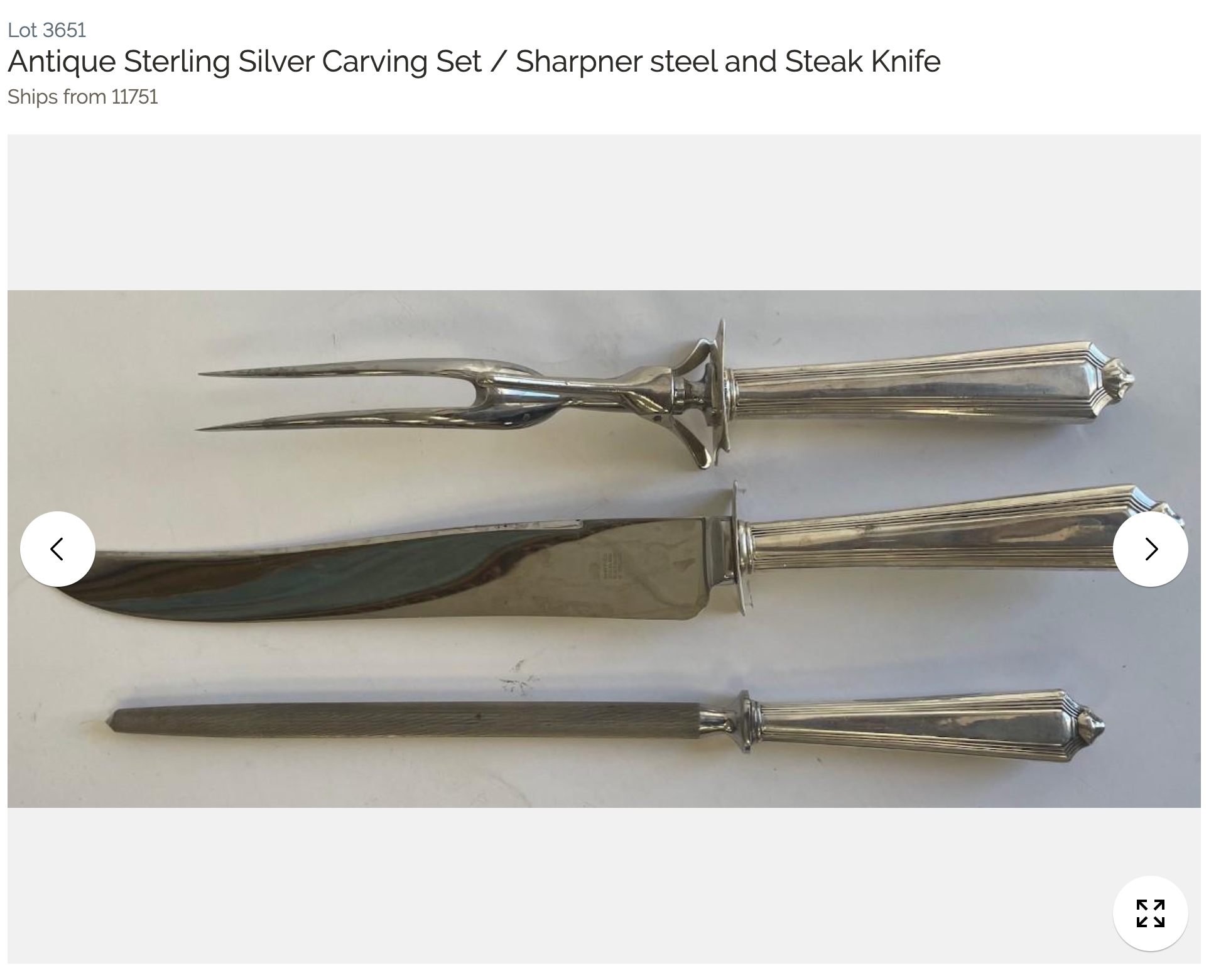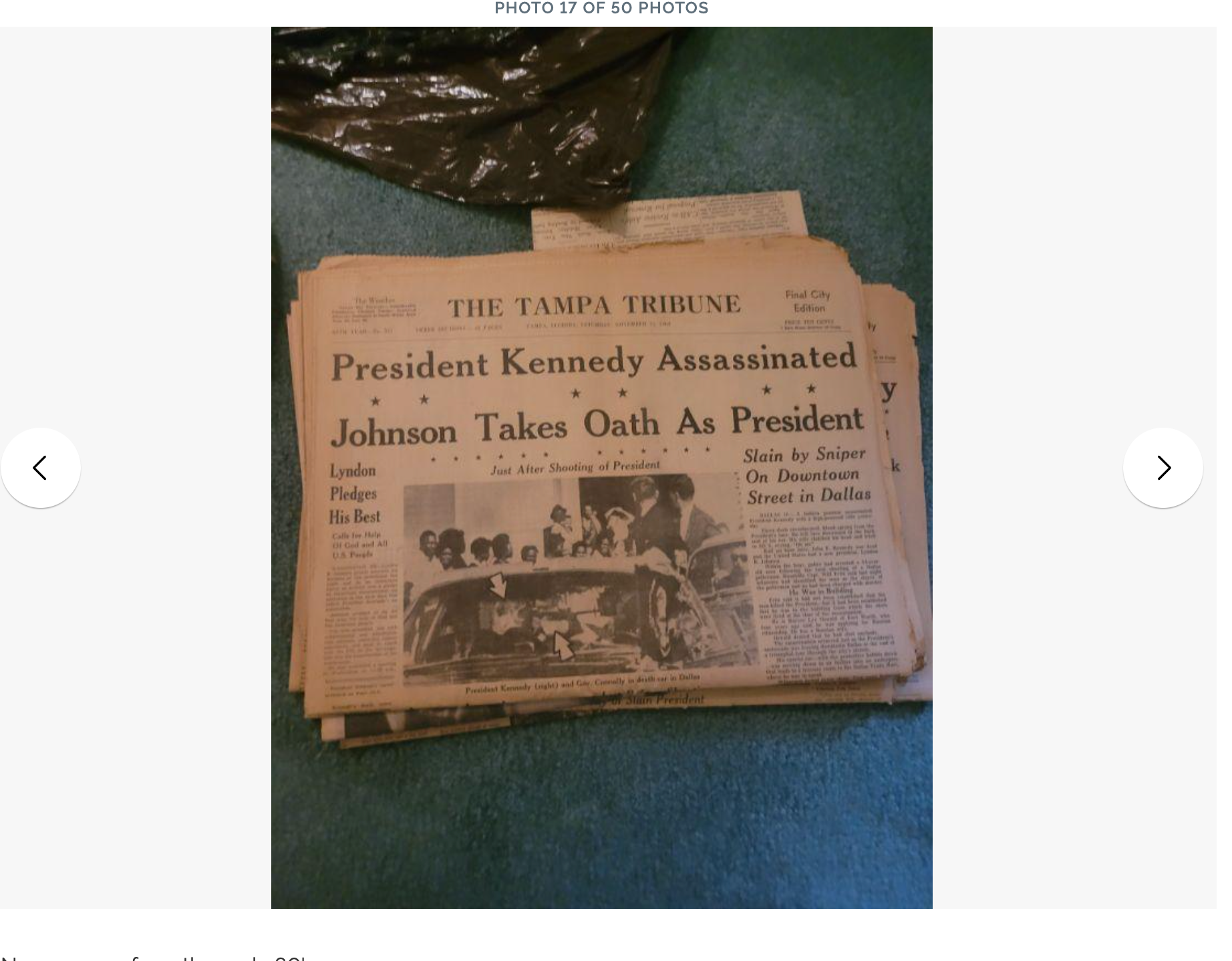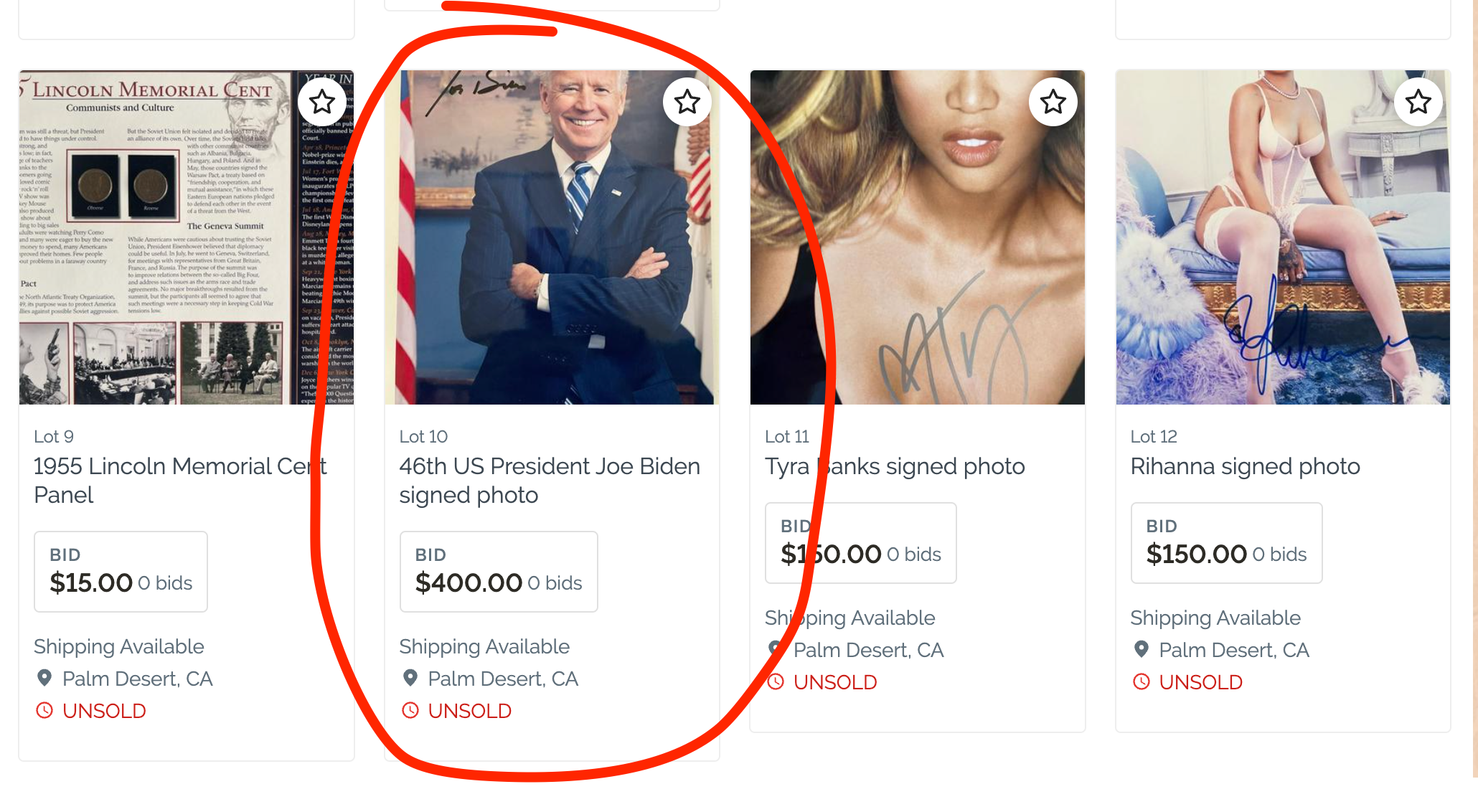Understanding Facebook Ad Compliance For Estate Sale Companies & Auctioneers
Facebook can be very useful as an advertising platform, and generally has a high reach among audiences that are likely to have an interest in attending estate sales and auctions. The downside is that advertising on Facebook can be tricky for estate sale companies and auctioneers, in that many of the items that are for sale at estate sales or auctions can go against Facebook's growing list of Advertising Standards. In fact, Facebook recently added "Auctions" to their list of "Prohibited Financial Services", and we have seen ads get rejected simply for referring to "bidders" or "auctions", even though auctions are not illegal and has a robust oversight committee in many states.
This article is a guidepost for what types of content are and are not allowed on Facebook, and gives some specific, real-world examples of content that is commonly rejected. With a better knowledge of what is and isn't allowed on Facebooks Ads, you have a better chance of success when using this platform to market your sales and auctions.
Facebook has a completely automated, "AI" based system that scans all ads, as well as the landing pages for each ad (including all of the text as well as all the image content). This system is unfortunately far from perfect, and often applies decisions that are not accurate. For example, if your ad mentions the word "estate", then their "algorithm" may flag your ad as "Discriminatory" because it thinks you may be advertising housing for rent in violation of the Fair Housing Act even though you are clearly not advertising housing. This is by far and away the most common reason for ad rejection, and our system can get around this by flagging ads that trigger this rejection and resubmitting the ad as HOUSING related (doing so in fact does nothing to the ad). Unfortunately, there are many other violations that can be are applied both accurately or erroneously, too many of which can place our ad account at risk,. Therefore we have implemented a thorough screening system for our Facebook ad boost feature, designed to protect our ad account from suspension.
If you are making use of our built-in Facebook ad boost upgrade, we will scan your ad and inform you of any potential violations. In certain cases, we may not be able to offer the Facebook Boost option due to nature of your sale or auction. In this case we will suggest changes you can make so that your ad is more likely to be complaint.
The following types of content are not permitted on Facebook's Ad Platform.
Prohibited Financial Products and Services
We recently had an ad rejected by Facebook with the reason given "Your ad doesn't comply with our Advertising Standards policy about Prohibited Financial Products and Services. Examples of prohibited financial products and services include: Auctions, such as penny auctions, bidding fee auctions and other similar business models."
On Facebooks own policy page, it states "Advertisers can’t run ads for financial products and services that are frequently associated with misleading or deceptive promotional practices." They go on to define:
- Penny auctions, bidding fee auctions, or other similar business models: A type of auction where all participants have to pay a non-refundable fee to place a bid
Although the auctions advertised on EstateSales.org do not involve bidder-fee "penny" auctions, Facebooks algorithm is simply not very smart, and it can and will flag the ad if it so much as mentions the word "auction" or "bid" one too many times.
Our smart system will attempt to filter these words out of your ad's landing page if we determine that Facebook is scraping your ad.
Weapons Of Any Kind (including historical Militaria)
Facebook does not permit any type of weapons on its ad platform. In their words "Listings may not promote the buying, selling, or use of weapons, ammunition, and explosives." This extends to items as simple as kitchen cutlery sets. Unfortunately, this means that we cannot permit the advertising of firearms, ammo, bladed weapons, and other militaria, even if it is purely for sale in the context of a historical collection. The following are examples of content that would be deemed a "weapon" by Facebook.



Third Party Infringement
Facebook has recently gotten more strict in terms of what they deem "Third Party Infringement". In their words: "Listings may not contain content that infringes upon or violates the intellectual property rights of any third party, including copyright or trademark. This includes, but is not limited to, the promotion or sale of counterfeits, such as goods that copy the trademark (name or logo) and/or distinctive features of another company’s products to imitate a genuine product."
At first glance, you may think this just refers to countefeit items. Unfortunately, we have experienced cases where Facebook will flag ANY ad that contains an image of an item that clearly shows a brand name on it, even if there is no indication that the item is counterfeit. Their definition of third-party infringement also extends to:
- Potential trademark or copyright infringement - Ensure that you are not using any protected trademarks, logos, or copyrighted content without proper licensing or authorization from the rightful owners.
- Gray market goods - If you are reselling items that were not intended for sale in your market, this could be seen as a violation of distribution agreements or intellectual property rights.
- Counterfeit or unauthorized products - Inadvertently selling counterfeit or unauthorized perfume products could also trigger 3rd party infringement claims.
This may be one of the trickiest aspects of compliance, since many items sold at estate sales and auctions advertise items that show a clear brand logo on it. Unfortunately, the following seemingly innocuous example photo resulted in an ad policy violation on one such ad:

Nudity
Facebook has a very strict policy surrounding nudity in its ads, and if your landing page even shows so much as a sculpture or artful abstract oil painting showing partial nudity or is "suggestive" in any way, it will trigger an ad policy violation. The following ads were rejected due to the presence of "nudity" on the landing page:


Ads About Social Issues, Elections or Politics
Although none of the ads posted by estate sale companies or auctioneers intend to promote a social issue, elections, or politics, the photos or text descriptions within can trigger this policy violation. Unfortunately, Facebook's AI algorithm is not smart enough to accurately infer the context of this. For example:
- Anything that simply mentions the a governmental position such as "judge" or "president"
- Old newspaper clippings or magazines that feature any political figure
- Photos or names of current or historical politicians
The following are real-world examples of content within the ad landing page that caused the ad to be rejected:



While the above examples show common issues relating to Facebook Ad policy violations, we cant predict or cover the entire range of violations that Facebook may flag now or in the future. It would be one thing if Facebook were to simply reject the ads that they think violate their policies and allow future ads that do not violate their policies to be run, but Facebook has a "strike" policy, which can and will cause an entire ad account to be suspended when it deems that too many violations or "strikes" have occurred. It is for this reason that we encourage you to be aware of these policies. Please help us keep our Facebook ad account safe from future suspensions by being aware of Facebook's Advertising Standards and ensuring that your ad is compliant before selecting the Facebook boost upgrade.
